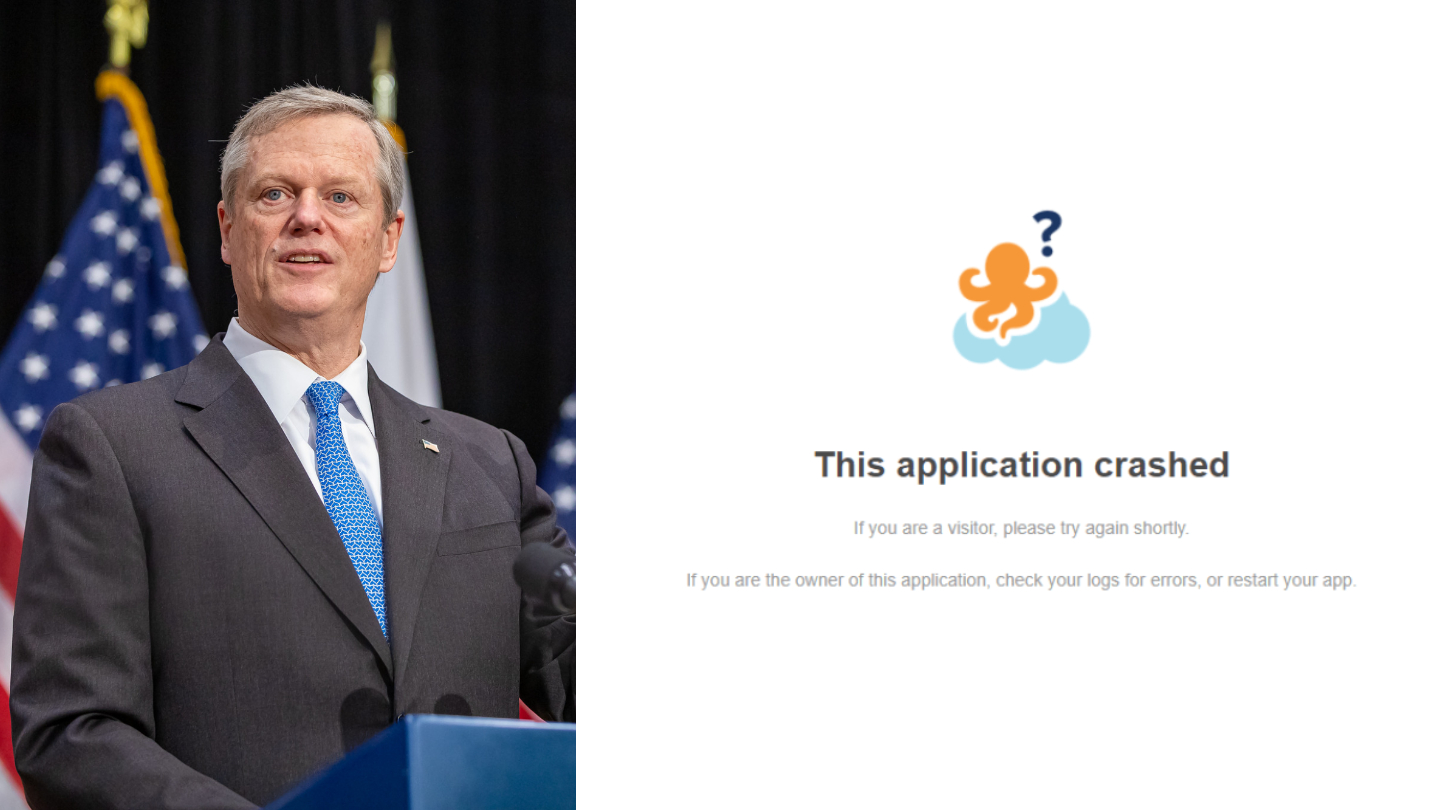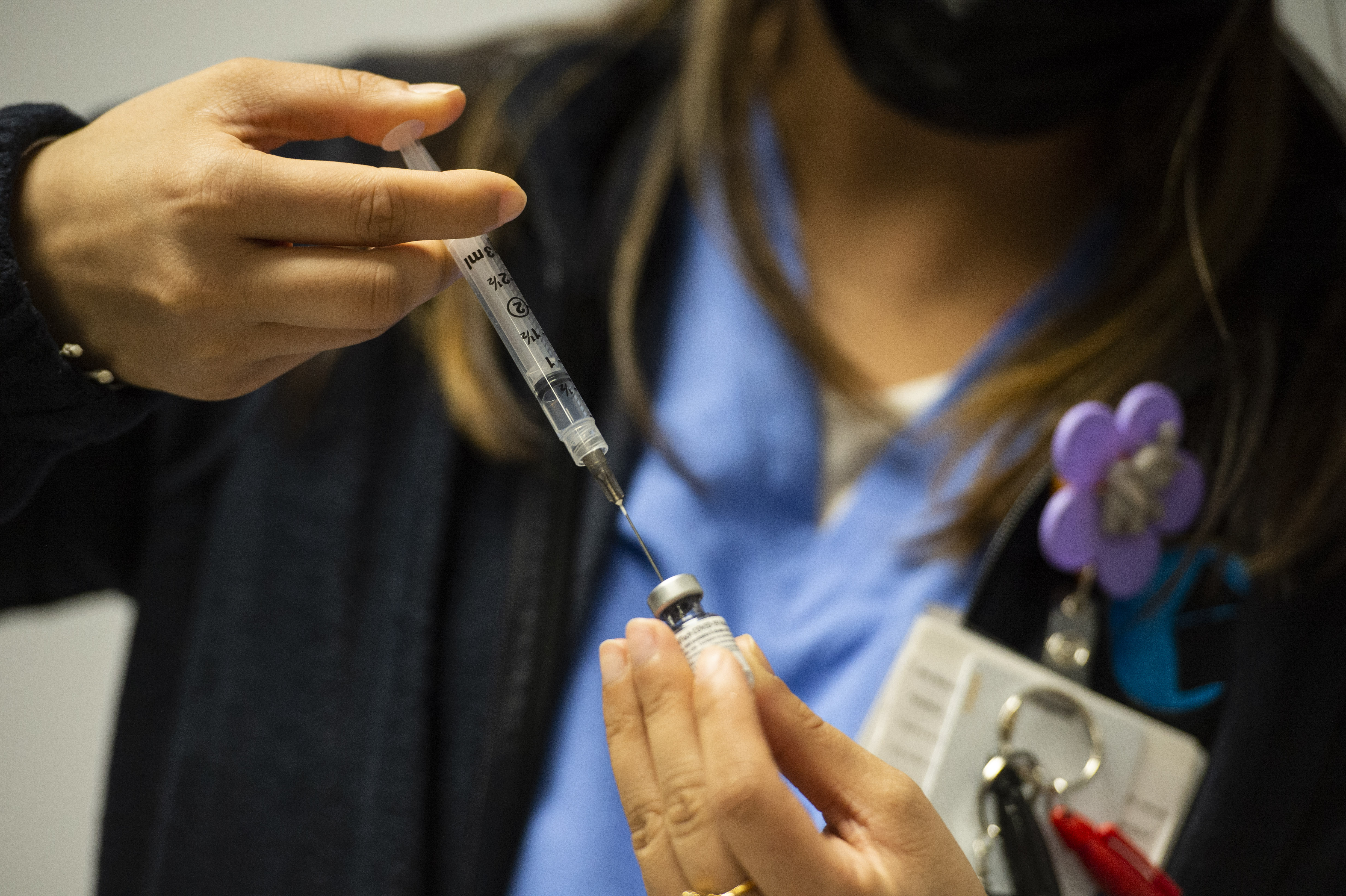With health metrics improving and mitigation measures in place across Massachusetts schools, Elementary and Secondary Commissioner Jeff Riley said Tuesday it is time to begin the process of getting more students back into classrooms.
Riley, who joined Gov. Charlie Baker and Education Secretary James Peyser on Tuesday afternoon to announce the push, told Board of Elementary and Secondary Education members that he plans to ask them in March to give him the authority to determine when hybrid and remote school models no longer count for learning hours, as part of a broader plan to return more students to physical school buildings.
WATCH ANYTIME FOR FREE
>Stream NBC10 Boston news for free, 24/7, wherever you are. |
"With COVID cases and hospitalizations on the decline, it's time to set our sights on eliminating remote learning by April, starting with elementary schools," Baker said Tuesday.
Get updates on what's happening in Boston to your inbox. Sign up for our >News Headlines newsletter.
Riley said he would take a "phased approach to returning students into the classrooms, working closely with state health officials and medical experts." He said his plan would focus on elementary school students first, with the initial goal of having them learning in-person five days a week this April.
He told the board he would then plan to phase in middle and high school students by the end of this school year.
“When the pandemic started we made it possible for districts to use remote and hybrid plans, through the student learning time regulations," Riley said. "At some point as health metrics continue to improve, we will need to take hybrid and remote learning models off the table and return to a traditional school format."
Parents would still be able to choose remote learning for their child through the end of the year, Riley said, and there would be a waiver process for districts that might need a more incremental approach.
Riley also told the board to expect more information soon on programs, slated to start this summer and likely to continue "for the next several years," to address learning loss and gaps developed while students have been out of school buildings, including one-week intensive tutoring academies, programs with community colleges for high school seniors who did not pass MCAS tests, and increased gifted and talented programs for students of color.
Public schools in Massachusetts have been offering an array of education options this school year, with most schools blending remote and in-person learning and about 20% of schools still in remote-only operations. Teachers and school personnel have pushed to be moved up in the vaccination eligibility hierarchy, but currently remain behind other large groups.
"I think we all agree there's no substitute for in-person learning, especially for kids in elementary school," Baker said. "The best place for kids is in the classroom."
He said the science is clear that it is safe to be in school. "The evidence on this one is crystal clear and has been for months -- it's safe to teach kids in the classroom, regardless of the community transmission rate, as long as people abide by the protocols."
"The announcement of his plan today was simply a bait-and-switch move to cover up his massive failure around the vaccine, including not having a real plan to get educators vaccinated," said Massachusetts Teachers Association President Merrie Najimy.
Educators aren't unanimous on the issue, however. Adam Cole, a teacher in Needham, is in favor of going back full time. He says the kids have lost a lot this year.
"They're losing their spark a little bit," he said. "They're losing their motivation."
"I don't believe that unions are negotiating right now for what's best for the children," argued Beth Humberd of Bring Kids Back MA.
Not mincing words, Najimy was very critical the plan from Baker and Riley.
"It's another demonstration of the commissioner's arrogance to create a top-down mandate without having any conversation with the people who are impacted," Najimy said.
Najimy says the move not only disproportionately affects the most vulnerable communities, but it puts unvaccinated teachers in a vulnerable position.
"It needs to happen, it needs to happen now. If he wants his goal of getting us back into the buildings, give us the added layer of protection of the vaccine," said Najimy.



